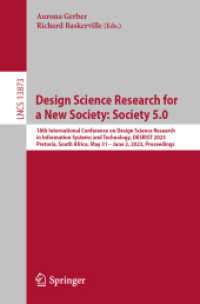- ホーム
- > 洋書
- > ドイツ書
- > Social Sciences, Jurisprudence & Economy
- > Politics, Society, Work
- > political science
Full Description
This book reviews empirical and theoretical research on sustainable development in the context of leisure management for communities.






